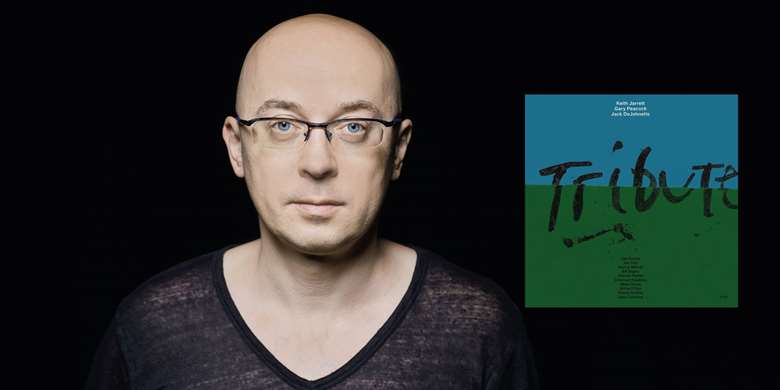Life-changing jazz albums: Keith Jarrett Standards Trio’s ‘Tribute’
Brian Glasser
Monday, December 2, 2019
Pianist Marcin Wasilewski talks about the album that changed his life, Keith Jarrett Standards Trio’s Tribute

My first jazz epiphany was actually not a record, but came while attending a jazz festival in 1989. That was when I – and my friends (still the same bass player, Slawomir [Kurkiewicz], as now!) – decided to become really interested in playing jazz music, not just listening to it. It was one of those Marlboro Jazz Festivals they used to have then, with Gene Harris and other greats like Ray Brown and James Moody. Perhaps the most impressive American act was the Michael Brecker Quartet with Joey Calderazzo, Jay Anderson and Adam Nussbaum. Incredible! One year ago Adam came to play with our friend who is a trumpet player, and we were able to play with him, which was incredible. We had been so influenced by him and we told him about it – it was huge for us.
There were also other concerts with top European musicians like Tomasz Stańko and Bobo Stenson. Three concerts a day, so 12 in total over the four days – we went to all of them! The impact of sitting in the seventh row in a huge live venue in Warsaw listening to so many concerts was incredibly powerful.
We were about 14 years old. I had been listening to jazz already. It was still not easy to buy music from West Germany [from Poland] at that time; but I was lucky, because my uncle loved music and was a drummer, so he had a lot of cassette tapes of great jazz albums: Jack DeJohnette’s ECM albums, 80/81 by Pat Metheny, Wynton Marsalis with Kenny Kirkland. He let me borrow them.
But after the festival I really got into listening more seriously. Now I wanted to learn. John Coltrane and his quartet; Bill Evans; modern musicians like Chick Corea, Herbie Hancock, and also young ones like the Marsalis family. Of course, the Miles Davis Quintet. I started to go through jazz history.
Soon after the festival I started to collect my own recordings, because I was able to visit my father in West Germany where I could buy records. The first one was Tribute, on vinyl; so that is incredibly special for me. I played it non-stop when I got home! Of course, I still have it. It’s nice that I bought it in Cologne where my father was living and where it was recorded.
Back then, I also bought albums by the Chick Corea Akoustic Band and Michel Petrucciani. Of course, soon vinyl was finished and I started to buy CDs. Sunship, Love Supreme, My Funny Valentine, albums by McCoy Tyner and Joe Henderson. You could only get these in West Germany at that point – the end of the 1980s and the beginning of the 1990s. I would only go once a year, so I bought lots and brought them back with me!
Keith Jarrett was also very important in another form. There was a videocassette of him that I bought when Communism collapsed and Poland started to be more open. There was a particular shop in town with things from the West, and I bought a live DVD of his trio in Tokyo. I was watching and listening to that videotape every day… In fact, for one-and-a-half years! The group had a fantastic sound and it was a brilliant performance by three giants together. I think it was the same concert as Standards Volume 2.
Anyway, after the Marlboro Festival, we started meeting to practice and learn more and more standards, and particular pieces that Keith Jarrett or Chick Corea were playing – trying to learn what to do! We were studying classical since we were seven, but at high school we started to play jazz. We also started to participate in a jazz workshop for two weeks every year, studying with older jazz teachers from Poland and also Berklee.
We were amazed by this music, just how powerful it was. From that moment, we had it in our minds to try to play this kind of music, to make music which sounded like those concerts. We were excited by all the generations of musicians – their music was like an invitation to us from them. Four years later we were invited to play at this very same festival! Me and my band, a quartet, were opening and we had 30 minutes to show what we could do.
Looking back, we were lucky that we were in our teenage years when Communism broke. We felt that something new was coming and that the old regime was gone – a good moment for jazz!



